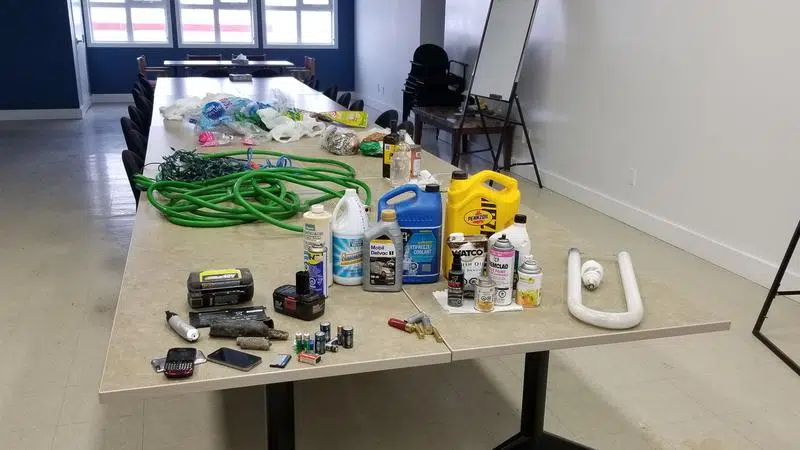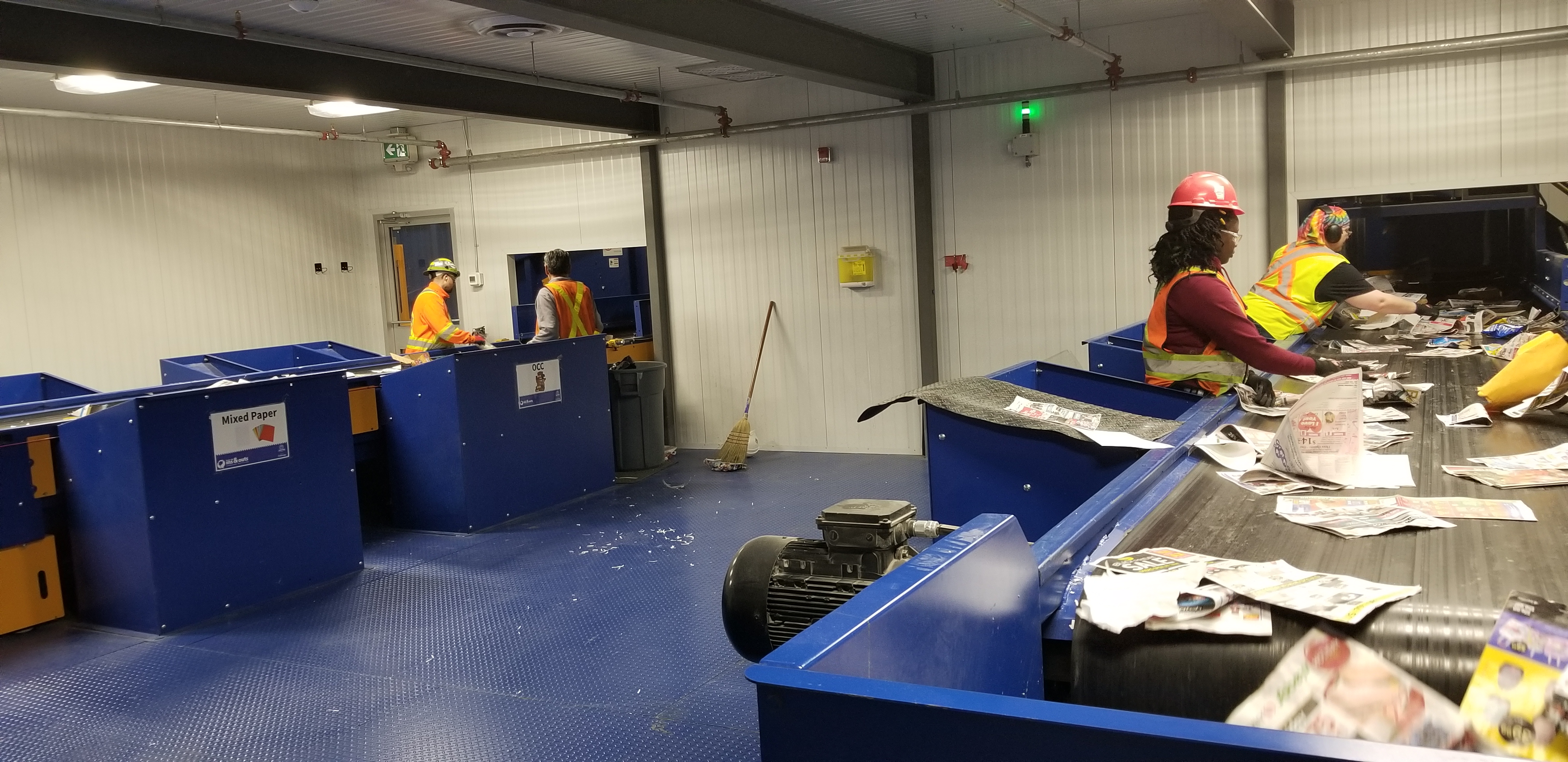
Proper disposal of utmost importance at Lethbridge’s Waste and Recycling Centre
LETHBRIDGE, AB – Safe to say it’s important to double check what you’re tossing into your blue cart.
Steve Rozee, manager of Lethbridge’s Waste and Recycling Centre, says they see examples of improper disposal on a regular basis.
Some items found at the Materials Recovery Facility (MRF) that shouldn’t be tossed into residential blue carts include knives, food waste and even bowling balls among others.
Rozee said that improper disposal can cause damage to equipment, and items like knives and bowling balls can also put MRF employees’ safety at risk.





